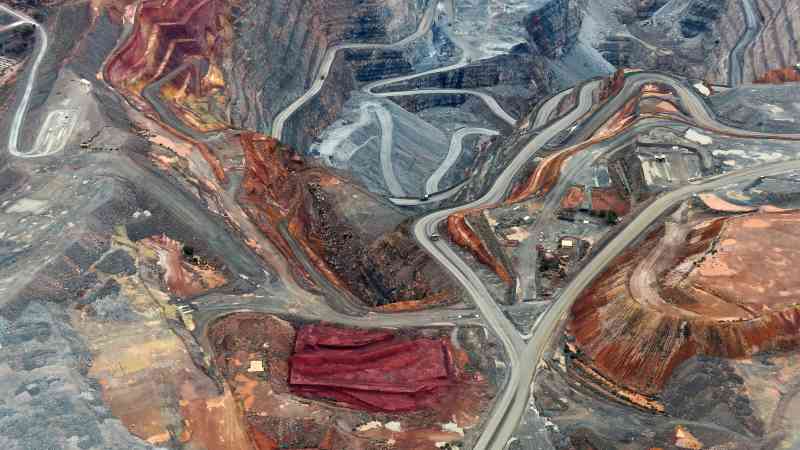The mining business BHP has announced the suspension of its Australian nickel operations as an oversupplied global market caused a drop in prices of the battery metal.
The world’s largest miner cited a growing supply of low-cost nickel in its decision to suspend operations at its Kwinana nickel refinery, the Kalgoorlie nickel smelter and its facilities in Mt Keith and Leinster, all in Western Australia.
The FTSE 100 miner will also suspend the development of its West Musgrave project, an open-pit copper and nickel sulphide mine in Western Australia’s Musgrave Province. The company has so far developed about a fifth of the site.
The fall in nickel prices has contributed to the operations suffering a loss before interest, tax, depreciation and amortisation of about $300 million in the financial year to June 30.
BHP also booked a pre-tax impairment against the division of about $3.5 billion and announced a review of the operations in February.
The Australian mining sector has been knocked by a substantial increase in nickel supply from Indonesia over the past five years. Indonesia is home to 42 per cent of the world’s nickel reserves and has become the world’s largest producer in a relatively short period.
The country’s nickel output rose from 345,000 tonnes in 2017 to 1.8 million tonnes last year, with the expansion putting pressure on global prices. Historically, about 80 per cent of world production has been used in stainless steel but in recent years it has increasingly been used in rechargeable batteries for mobile phones or the battery packs that power electric vehicles.
Separately, investors in the mining sector were looking to support the supply chains required to build electric vehicles a year ago as they predicted low-carbon cars would be key to global greening efforts. Yet, car manufacturers have warned more recently of a weakness in sales growth, prompting battery producers to reduce purchases of metals required for their manufacturing processes, putting pressure on prices.
The mining company has announced a number of measures to support the economy in Western Australia as the shutdown is expected to affect about 3,000 jobs. BHP said it would seek to redeploy staff where possible.
BHP has committed itself to running a “responsible transition process” in the region and will establish a community fund of $13.5 million. The company also said the area would remain “an important investment destination” and that it would continue to “advance the economic prosperity of the state” with investment of more than $8.1 billion over the next five years.
Geraldine Slattery, BHP’s president in Australia, said the decision to suspend operations had been “difficult but necessary” and that the company would continue to invest about $300 million a year into its nickel facilities in Western Australia. The funding will ensure the operations could recommence if the economic conditions change.
Slattery added: “Like others in the Australian nickel sector, we have not been able to overcome the substantial economic challenges driven by a global oversupply of nickel.
“We understand this is a challenging period for the Western Australia Nickel team and surrounding communities. Every frontline employee will be offered another role within BHP, and best endeavours will also be made to identify redeployment opportunities for other employees engaged in the day-to-day operations of Western Australia Nickel.”
BHP’s decision to shut down a string of nickel operations follows its failed bid for rival Anglo American. The Australian group had been seeking to buy Anglo to seize control of its highly prized copper assets but was ultimately rebuffed.
Anglo has instead pledged a strategic review to accelerate the delivery of value for its shareholders, with a possible sale of its De Beers diamond division, as well as its nickel assets. De Beers and other traditional diamond miners are under pressure from the growing popularity of cheaper, lab-grown varieties.
The world’s largest listed miner intends to review its decision to temporarily suspend its Western Australia nickel operations by February 2027.
BHP’s shares closed up by 0.9 per cent at A$43.56.
